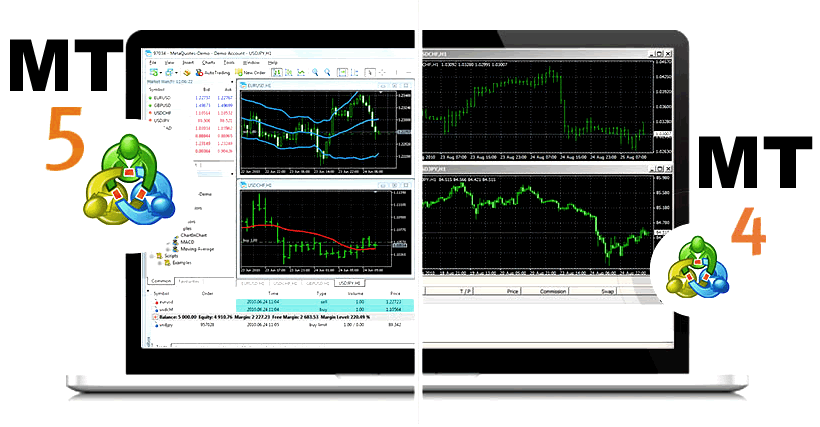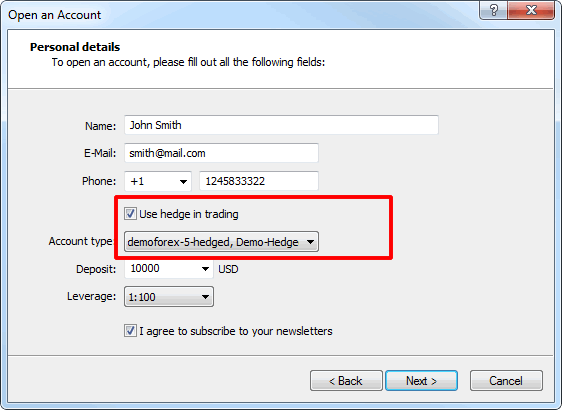MetaTrader 5- Is it better than MetaTrader 4?
MetaTrader 5- Is it better than MetaTrader 4?
Forex traders have the option of selecting the trading platform that they want to use. However, this decision is intertwined with the decision on which Forex Broker to use, because not all Forex Brokers provide all sorts of trading platforms to their clients.
Aside from that, some brokers do not have actual compatibility with certain Forex trading platforms, but they do provide access to them through a bridge, which is a piece of software that connects a Forex Broker’s trading system with a platform. This can operate satisfactorily, but a bad or slow bridge might have a negative impact on the execution and management of operational activities.

MT4 vs. MT5: Which is better?
In the trading world, the Metatrader 4 platform is well-known, and it can unquestionably be claimed to be the industry standard. I have never come across a Forex Broker who does not allow traders to trade directly through the platform or through an internal bridge to the platform, albeit at the expense of a somewhat larger spread and/or commissions.
The Metatrader 5 trading platform is less well-known, despite the fact that it is manufactured by the same business as the previous two (the Cyprus-based MetaQuotes Software Corporation). We need to take a closer look at the platform in order to understand why this is the case.
What exactly is MT5?

Metatrader 5 was released in 2010, five years after Metatrader 4, at a time when Metatrader 4 was already very popular, and because the names of the platforms contain a sequence of numbers, there is a common misconception that Metatrader 5 was simply a new and improved version of Metatrader 4, designed to do the same job better. This is not correct.
However, despite the fact that it is a trading platform and back testing machine, exactly like Metatrader 4, and that the graphical user interfaces appear and feel very similar, this is not the case. This is something that should be mentioned in any proper Metatrader review.
Metatrader 5 was created to be able to do functions that were previously unavailable in Metatrader 4. The fact that it was designed for a different market means that there is little point in getting into a debate about “MT4 vs. MT5” in the first place.
For the most part, Metatrader 5 was created to be able to trade markets other than forex, such as stocks and commodities, mostly because it is more capable of connecting to an exchange-based trading platform. A number of big participants provide liquidity to this massive market at somewhat varying prices, in an uncoordinated manner, as a result of the decentralisation of the forex market.
Stocks and commodities, the latter of which is traded in a manner similar to a futures contract (in fact, many contracts with varying expiration dates), must typically be transacted through a centralised mechanism before ownership can be transferred with full legal force between individuals.
No Hedging Compliance in MetaTrader 5
The other key differential design issue was compliance with the “no hedging regulation” in the United Specifies, which states that clients of Forex Brokers in the United States are not permitted to hedge their positions. They are required to negotiate on a first-in, first-out (FIFO) basis.
If a trader intends to buy 1 lot of EUR/USD and subsequently buy an extra lot of EUR/USD, the first deal must be completed before the second trade may be completed. Metatrader 4 records each trade individually and permits management of each individual position separately, however Metatrader 5 automatically adds all of the trades together.

MetaTrader 4 better than MetaTrader 5 in Hedging
Thus, only Metatrader 4 is capable of dealing with hedging; Metatrader 5 is incapable. However, although this is acceptable for traders in the United States, who are barred from hedging under any circumstances, many traders in the rest of the world find the inability to execute hedging an extremely unpleasant and unneeded handicap.
It is most likely the primary reason why many traders have been dissatisfied with their brokers and, potentially, MetaQuotes for “pressuring” them to adopt Metatrader 5 instead of Metatrader 4 in their trading.
Simply told, Metatrader 5 was created to appeal to markets other than the Forex market and the US markets, as well as to better address the inherent demands of those markets than Metatrader 4 was able to do. This is the real storey of MT4 vs. MT5 in the Forex market.
When it comes to Forex trading platforms, what is the difference between the MT4 and the MT5?
The two most significant differences have previously been discussed, but there are several others that should be considered when comparing MT4 with MT5.
Metatrader 5 makes use of a programming language known as MQL5, as opposed to the MQL4 used by Metatrader 4, which was used by Metatrader 4. It is the ability to programme in “black box” mode that is most appealing about MQL5. This, simply put, implies that it is simpler to write and, thus, logically, a superior framework for users and producers of trading robots and other expert advisers.
As a result of MetaQuotes’ 2014 expansion of this feature in MQL4, there is no longer a distinction between platforms, although there is a possibility that, if the language is changed at some point in the future, MetaQuotes will not extend any updates in MQL4 or MQL5.
It should be noted that there is no backward compatibility with previous versions of the software. Scripts built for Metatrader 4 will not operate on Metatrader 5, and vice versa. Traders who seek to “upgrade” may find this to be a significant nuisance, which is one of the primary reasons why such a modification should not be considered an upgrade.
Although Metatrader 5 has two significant programming-related advantages over Metatrader 4, it is true that Metatrader 5 preserves two important programming-related advantages over Metatrader 4. One of the most significant improvements is that its back testing functions, where you may test programmed trading strategies, run at a significantly faster speed, which is an important feature for traders who need to conduct huge numbers of back tests because they are time-sensitive.
It also enables for the backtesting of multiple currency pairs at the same time. Back testing procedures can be significantly accelerated when these two factors are combined.
